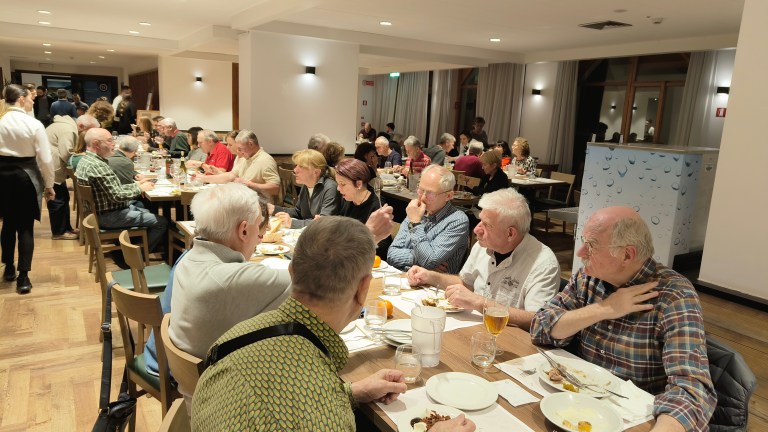

The true story of the young soldier Woyzeck, who was found guilty of murdering his girlfriend in 1824 and sentenced to death, inspired the young Austrian Georg Büchner to write his play. The work remained unfinished, Büchner died of typhus in 1837 at the age of 24, and Woyzeck was not staged until 1913. Alban Berg saw the play a year later in Vienna and decided to turn it into an opera. The premiere on 4 December 1925 in Berlin was an overwhelming success.

“Fragmentary, hallucinatory and extremely pessimistic’. This is how the play was described and this is an exact description of the opera also. This work – perhaps the most moving opera of the last century – always comes with an unprecedented inaccessability The music is highly expressive and cannot be defined by a single definition: Berg used both dodecaphony and the sweetest violin sounds, and alternated the sprechgesang with melancholic ‘arias’.

Masterpiece or no (for me an absolute masterpiece) everything depends on the performance and there are many.
A selection:
DVD’S:
Hamburg 1970

Under the direction of Rolf Liebermann, the Hamburg State Opera grew into one of the best and most talked-about opera houses in the world. Liebermann ensured a good, thorough and diverse repertoire with extra attention to contemporary works.
Fortunately for those of us who did not experience those years (consciously), Liebermann also thought about the future and commissioned the director Joachim Hess to record about thirteen of his productions for TV. Most of the recordings were made in a studio, but with Wozzeck they went to a castle in southern Germany and also its environs.
The now almost completely forgotten baritone Toni Blankenheim was one of the pillars of the Hamburg opera. He sang numerous roles, but only became truly famous as Schigolch (Lulu), in the production with Teresa Stratas.
His very charismatic appearance, his enormous acting talent and his agile, warm baritone made him more than suitable for singing roles of “complex characters”. A character like Wozzeck. Better than anyone, Blankenheim is pretty much the personification of the “simple soul”; his despair is not played and you can really see the incomprehension on his face.
Sena Jurinac is a beautiful, slightly timid, but very sensual and erotically charged Marie.
Bruno Maderna has never been a champion of conducting other people’s works, but he certainly has a great affinity with Berg’s idiom.
The production is very realistic and the tension is palpable. It is as if you are watching an unadulterated thriller.
Liebermann is now seen as the father of Regietheater (directing theatre), but his vision was quite different from today’s conceptualism and its search for (and often crossing) the boundaries of the permissible and the ridiculous. Anyway: see for yourself. That recording is an absolute must (Arthaus Music 101277)https://www.youtube.com/embed/rHFFPyU41_0?version=3&rel=1&showsearch=0&showinfo=1&iv_load_policy=1&fs=1&hl=nl&autohide=2&wmode=transparent
Wiecej TUTAJ
Kategorie: Uncategorized
